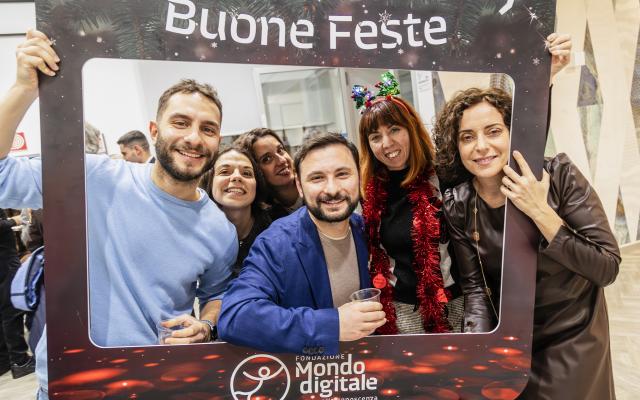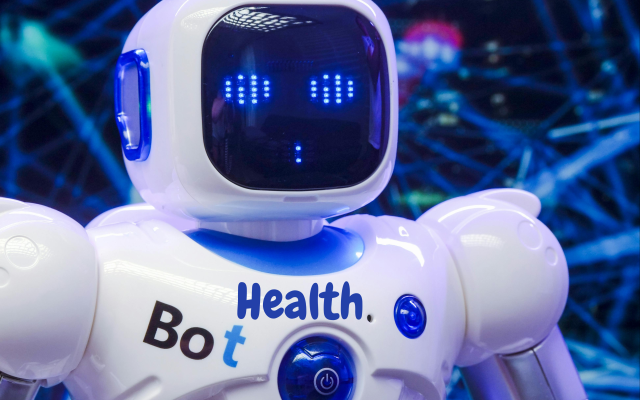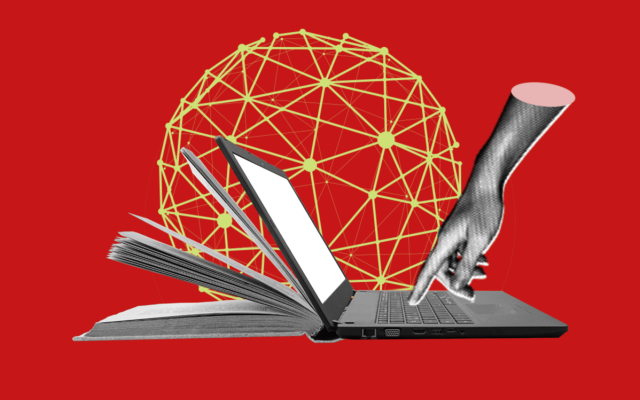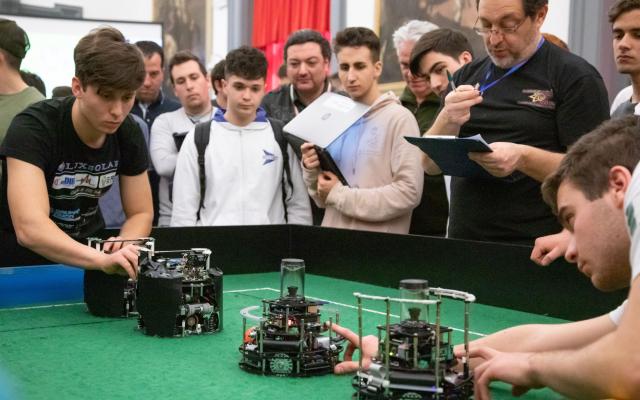RomeCup 2023: a first for the Rome “San Raffaele”
This year, for the first time, the San Raffaele Institute Scientific for Research, Hospitalization and Healthcare will participate in RomeCup 2023 (May 3-5). In particular, the institute's researchers will man a stand in the showcase area to illustrate “phygital” rehabilitation, the synergy of mechatronic systems, virtual stimuli and biomedical robotics applied to rehabilitation. Visitors will have the opportunity to "immerse themselves" in two real research laboratories – "Brain Connectivity" and "Rehabilitation Bioengineering" – to experience innovative walking simulation robots, including Atlas, the 'overground' exoskeleton for children.
"Challenges and Opportunities of AI for the Future of Medicine" is the title of the university orientation talk, scheduled for May (12:00-13:00). The meeting aims to introduce students to the imminent digital transformation of the healthcare system, including the incredible opportunities available to doctors and patients, as well as legislative, regulatory and ethical issues concerning digital technology. It’s a revolution that calls for a new class of healthcare professionals with multidisciplinary skills and capable of implementing new technology in clinical practice.
Marco Franceschini, Director of the Clinical Research Laboratory in Neuromotor Rehabilitation, will participate in the session with young talents on Frontiers of Research in Italy, dedicated to the first edition of the Advancing Technology for Humanity Award - Most Promising Researcher in Robotics and AI Award.
With a brief interview with the Scientific Director of the IRCSS San Raffaele, Massimo Fini, we delve into the mission of the institution and its decision to join the educational and training mission of Rome Cup 2023.
What are the specializations of your organization, its main objectives, and its mission?
The San Raffaele was recognized as a Scientific Institute for Research, Hospitalization and Healthcare over 18 years ago. Its commitment is to guarantee the highest standards of healthcare and research in the area of motor and sensory rehabilitation in different fields of medicine. Assistance activity is divided into various sectors in which the San Raffaele has a long tradition of excellence: neuromotor rehabilitation, paediatric rehabilitation, cardiological rehabilitation, respiratory rehabilitation, and general medicine. Our extensive scientific production is a result of clinical, translational, and basic research activities, as well as the excellence of assistance carried out, also in collaboration with other groups and institutes at the national and international level. Our research teams conduct activities covering all the fundamental branches of scientific investigation, including neurophysiology, neurobiology, electron microscopy, medical genetics, cellular and molecular pharmacology, pathology molecular, cellular and ultrastructural, and bioengineering. The researchers contribute to an absolutely modern vision in which a paradigm of innovation in medicine and rehabilitation leads to a global strategy for prevention, diagnosis, treatment and monitoring based on patient characteristics, focusing treatment on individuals through a precision medicine approach. The mission of the IRCCS is to guarantee excellence in the human process – even before the clinical – of care. People with disabilities and their quality of life are the ultimate goal to which the San Raffaele aims to provide high quality services, evidence-based clinical management, and a fervent translational research activity.
Why did you decide to join RomeCup 2023?
Our participation in RomeCup 2023 stems from the desire to disseminate the highly innovative theoretical, technological, and operational approaches underlying research at our institute. Our research aims to implement, evaluate and predict the efficacy of innovative high-tech therapies based on robotics, virtual reality, and distance rehabilitation. Furthermore, it focuses on an understanding of central and peripheral neurological mechanisms, on the creation of multi-domain assessment and analysis protocols for individual patient's biomechanical and electrophysiological characteristics through the use of advanced algorithms and artificial intelligence, and on the design of new sensor-equipped devices for understanding the cortical, muscular, and behavioural correlates of rehabilitation.
During RomeCup 2023, our researchers will demonstrate some of our multidisciplinary investigation and intervention strategies with different types of technologically advanced tools: robotic rehabilitation (latest generation exoskeletons for walking recovery in adults and children), functional assessment through electrophysiological (EEG, EMG), behavioural (eye-tracking, evaluation of responses to motor tasks) and biomechanical (wearable sensor networks) elements.




